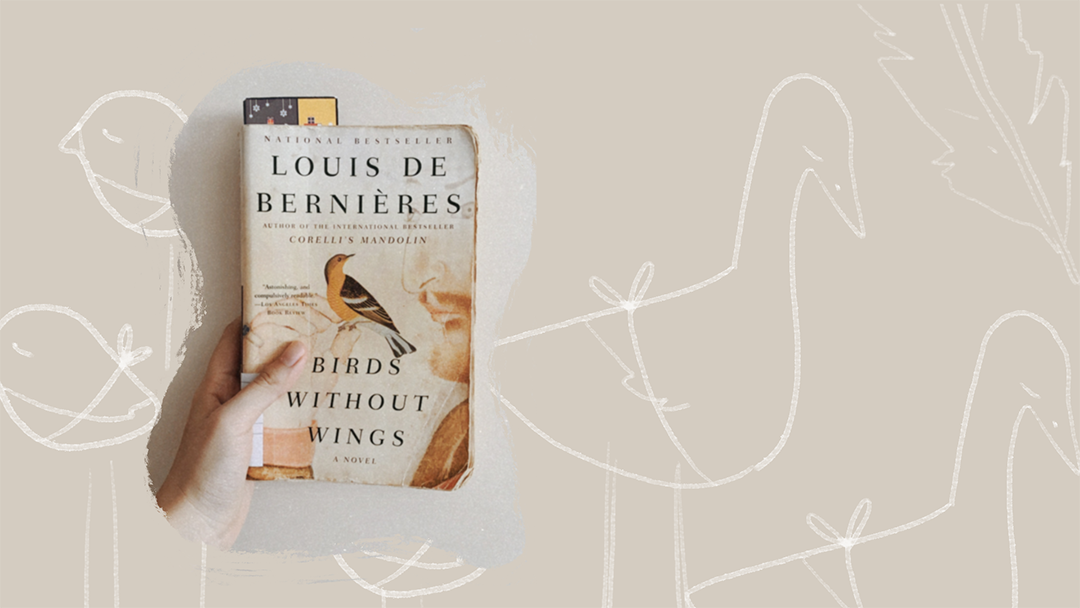Overall rating: 10/10
Easy to read?: Easy/Medium/Hard
Length: Medium
Genre: Historical fiction
Themes: War, nationalism, history, chaos, beginnings, loss, ethnic identity, national identity, fatalism, allegiances, the fall of empires, the rise of republics, individuals, personal autonomy, nation building
Time period: The end of the Ottoman Empire, World War I (early 1900s)
When a novel is situated in an epochal transition, where historically significant events loom in the background against the characters, contrast is born: between capital 'H' History, and the ‘little histories’ of the ordinary villagers of Eskibahçe (a fictional village in Anatolia); between the ‘Big Story’, and their ‘little stories’.
Destiny/fate, then, is a central player here, although not obviously given a voice or personality traits. But it's often referenced, especially noticeable in the fatalism in the survivors' tone of voice and perspective on life. Leaders of nations or empires are on the side of destiny or fate, with ordinary folk as bit players in the historical force sweeping them up.
Birds Without Wings flits from the present-day formation of a new nation (Turkey) — born out of the conflicts that ended the Ottoman Empire as recounted to us by Iskander the Potter — to various survivors recounting their portion of memory, to the historical background of Eskibahçe, a 'sleepy' village under Ottoman rule, where Christians and Muslims live together in a kind of harmony, with little sub-character arcs, to transitioning into the threat of war, the Battle of Gallipolli and so on, until Mustafa Kemal Ataturk becomes the first president of Turkey.
It's as though the myriad of accounts reflect the double-edged sword of shattering and scattering that wars and nation-building leave in their wake. At the same time, the intermingling of the ‘ordinary’ accounts of the villagers in Eskibahçe and Mustafa Kemal’s story and point of view in the bigger story bears a sameness — in that — they all are human.
It's remarkable that a significant part of the story involves four children and their relationship with the rest of the villagers. I think it's because youth represents possibility, hope and innocence.
Karatavuk (a Muslim) and Mehmetçik (a Christian), the two best friends nicknamed after a blackbird and a robin respectively, carry around bird-whistles made for them out of clay. A part of their daily activities when they were kids include calling out to the other by blowing through these whistles. Everyone in the village instantly recognise the identity of these bird noises, and everything is as natural as can be.
When they grow up in the midst of war’s impending arrival, their innocence and hope for an uncomplicated future are met with the mammoth issues of religious allegiances, national identity, displacement, the brutality of war, which result in broken ideals and dreams of a life and home beyond their grasp. The bigger players of the historical drama have deemed it necessary to change everything that existed before, setting their plans in motion, agendas hidden till the fullness of time reveals itself.
Historically, Greeks/Christians and Turks/Muslims lived together in this region for a long time. It’s repeated in the novel too. But history is “turning and turning in the widening gyre,” and the end makes way for a beginning, just like W. B. Yeats’ gyre imagery in The Second Coming. The end of one historical era (Ottoman) brings with it another (Turkey as a republic). But it also brings an erasure of a common national identity (in this case, being part of the Ottoman Empire and all of the mixed-bag beauty). The erasure ensures that the new Turkish national identity holds, but at the cost of the dear relationships between the Christians and the Muslims in this village. The sentimentality and way of life between Karatavuk and Mehmetçik are ruptured as a result.
Karatavuk writes this letter to Mehmetcik at the end of the novel, when they're both aged. All Christians are forcefully deported to Greek, where they "belong", in a population exchange to receive rightfully Turkish people. Karatavuk has no idea where his best friend is.
“You and I once fancied ourselves as birds, and we were very happy even when we flapped our wings and fell down and bruised ourselves, but the truth is that we were birds without wings. You were a robin and I was a blackbird, and there were some who were eagles, or vultures, or pretty goldfinches, but none of us had wings.
For birds without wings nothing changes; they fly where they will and they know nothing about borders and their quarrels are very small.
But we are always confined to earth, no matter how much we climb to the high places and flap our arms. Because we cannot fly, we are condemned to do things that do not agree with us. Because we have no wings we are pushed into struggles and abominations that we did not seek, and then, after all that, the years go by, the mountains are levelled, the valleys rise, the rivers are blocked by sand and the cliffs fall into the sea.”
Ending on what I think is a ‘soft minor key’, this thought rounds off the novel, leaving us to question: Are there bigger, more important birds, and lesser, smaller birds in this world? Are we, the smaller birds, grounded, all at the whim of History and its big players?
The richness in Eskibahce and the voices from that little village seem to represent the reality that each person, quirky and rough around the edges as they seem, were all throbbing with life. And their histories, stories and "small" worlds are significant, credible and important.



